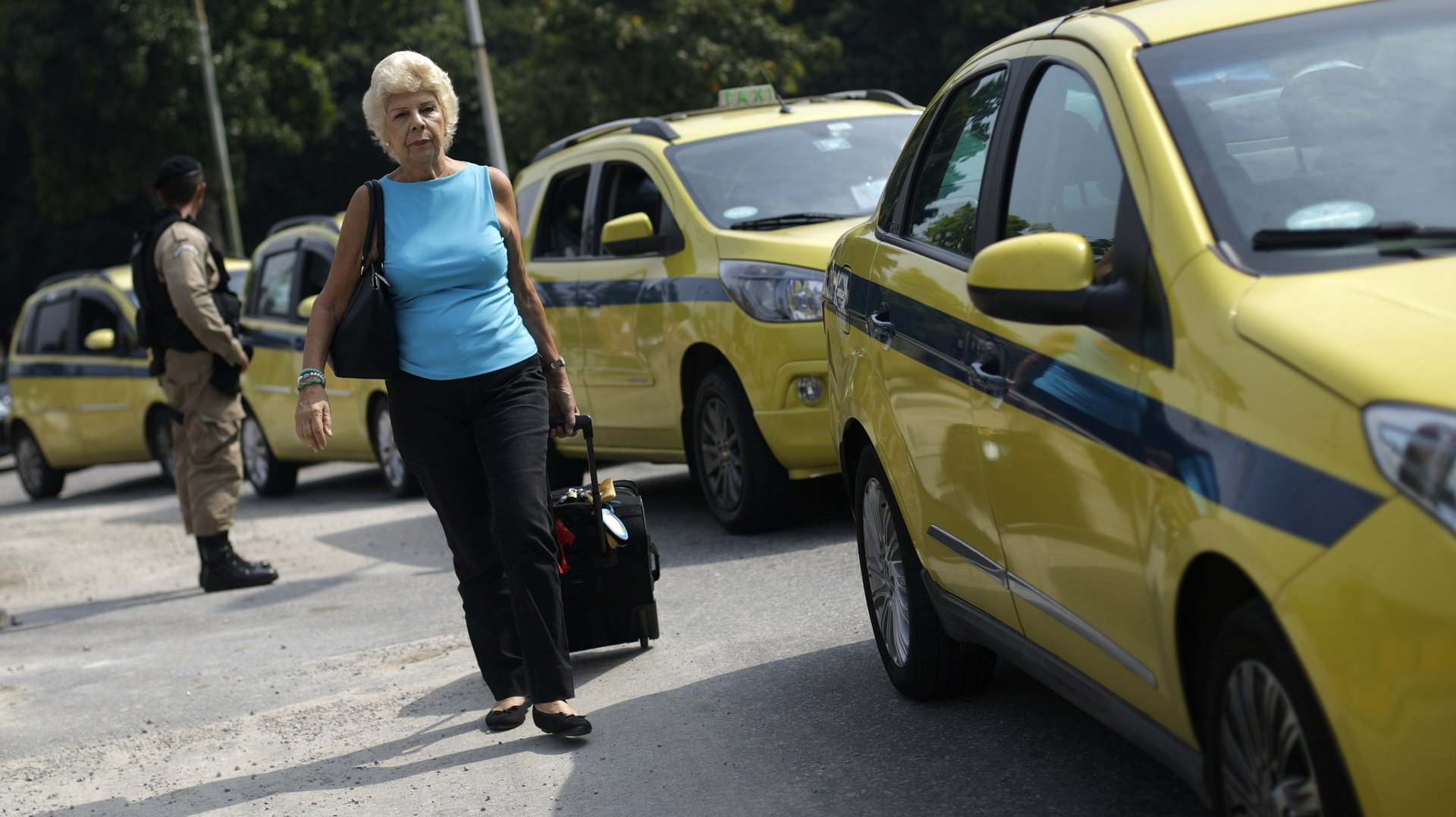Didi and Uber are still competing—only now the turf war is in Latin America, not China
The ride-hailing wars are not over, and they’re shifting to Latin America.


The ride-hailing wars are not over, and they’re shifting to Latin America.
Didi Chuxing, which bought Uber’s China operations in August, announced today (Jan. 5) in a joint statement it led a $100 million investment in 99 (formerly 99Taxi), Brazil’s dominant ride-hailing company. The funding widens Didi’s reach outside of its Chinese borders, and further complicates the company’s relationship with Uber.
99 remains little-known outside of Brazil, but it has maintained a strong presence in the country since its launch in 2012. To date, it’s active in 550 cities across Brazil and has more than 10 million app downloads, according to the company. Uber, by comparison, is active in just 30 cities in Brazil. Like Didi, India’s Ola, and Southeast Asia’s Grab, the company got its start by connecting municipal taxis with passengers before moving into private car-hailing.
The investment does little to clarify Didi’s relationship with Uber post-acquisition. Amid a fierce battle in China that saw Uber burn through about $2 billion dollars, Didi retaliated by investing in Uber’s rivals in other regions. In 2015 it sunk $350 million into Grab, $100 million into Lyft, and a reported $30 million into Ola. But those investments ultimately were dwarfed by Didi’s $1 billion acquisition for a stake in Uber, as part of its deal to acquire Uber’s China operations. Since then, Uber China employees have either left the company or been laid off, and its app has been watered down.
The investment in 99 makes it even more unclear whether Didi and Uber are friends or foes—especially since Uber is set to itself invest heavily in Latin America. With China off the table, the company has ample funds to spend on expanding in other countries. While India is technically now the company’s largest country in terms of ride volume, with 5.5 million rides each week as of September, the company told Bloomberg that it’s posting double India’s ride volume in Latin America—which has about half of India’s population.
Both Uber and Didi have plenty of competition in Latin America already. Madrid-based Cabify is active in 30 cities across Latin America. In April 2016 it raised a $120 million round of funding led by Rakuten, a Japanese internet company that also invested in Lyft. There’s also Easy Taxi, which is backed by Rocket Internet, the German startup clone machine. If China serves as a precedent and ride-hailing turns out to be a winner-takes-all game, these four companies might be whittled down to one.